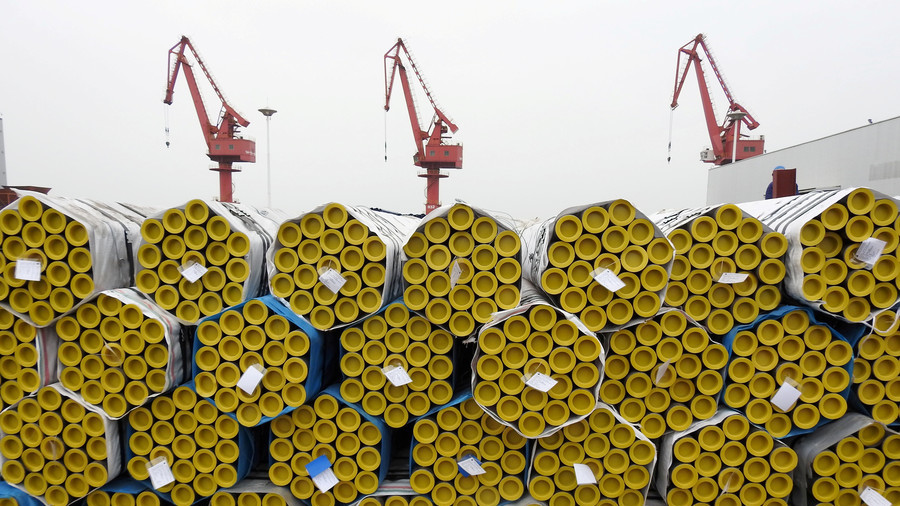http://news.sina.com.cn/o/2018-03-30/doc-ifystxss5215400.shtml
国内新闻>正文
新闻
中方霸气回应别撞南墙再回头 美大豆出口协会慌了
中方霸气回应别撞南墙再回头 美大豆出口协会慌了
0
原标题:别撞上南墙再回头!外交部今日霸气回应,美国大豆出口协会慌了…
据人民日报客户端消息,在今天(3月30日)的外交部例行记者会上,有记者问了这样一个问题:
据报道,美驻华大使布兰斯塔德接受媒体采访时表示,中国不应把限制从美国进口大豆作为报复措施,中方对此有何评论?
▲图片来源:人民日报
外交部发言人陆慷表示,中方不想打贸易战,但如果被迫卷入贸易战,中方有底气、有信心维护好自身利益,美方没必要非撞上南墙再回头。
别撞上南墙再回头!
外交部回应限制进口美国大豆
陆慷在记者会上说:
我知道布兰斯塔德大使来自美国重要的农业州。他关心美国农业产业者利益是完全可以理解的。事实上,最近我们也看到,美国国内因担心美国政府单边主义措施导致中美贸易关系恶化的还不仅仅是农产品行业。
至于中方是否应该拿大豆作为反制领域,我想大家必须清楚一点,那就是进行贸易和贸易战的区别在于,贸易是大家商量着来,而贸易战一旦开打,应战的一方只会根据自身利益和需要来决定反制的时间、方式和领域。
陆慷表示,我们多次说过,中方不想打贸易战。同时,我们也多次表明过,如果被迫卷入贸易战,中方有底气、有信心维护好自身利益。我们希望美方决策者也认真聆听美国消费者和有关产业界的广泛呼声,仔细权衡单边主义举措对美方的利害得失,没必要非撞上南墙再回头。
不少网友纷纷为外交部的回应点赞↓
据美国大豆协会统计,每年美国农民生产的大豆有1/3销往中国,总价值约为140亿美元,过去十年中国进口量至少翻了一倍。《环球时报》3月21日发文称,美国补贴大豆出口严重冲击中国豆农,但大豆没有出现在此前中国政府针对美国钢铝关税发布的对等反制名单中。
因此,在这一轮贸易战中,“大豆牌”被不少人认为是中国最有效的反制措施之一。每经小编(微信号:nbdnews)注意到,尽管大豆尚未纳入中国的反制计划,但美国大豆出口协会已经很慌了。
满满的“求生欲”
让美大豆出口协会亲自来华
3月30日,参考消息援引外媒报道称,美国和中国官员举行会谈,以保护美国的大豆和其他农产品免受北京和华盛顿互施的贸易制裁。
据香港《南华早报》网站3月29日报道,美国大豆出口协会董事凯文·斯科特说,美国大豆出口协会成员本周抵达北京,与中国农业农村部国际合作司的官员见了面,正在想办法保持美国对中国最大出口产品大豆的正常贸易。
▲香港《南华早报》网站报道截图
报道称,消息人士说,美国贸易代表莱特希泽的办公室召集包括美国大豆协会在内的多个农业协会的代表到华盛顿举行一次特别圆桌会议。
消息人士说,会议将于(当地时间)30日举行,会议的目的是“解决我们国家的生产者和农业企业面临的贸易问题”。
▲美国贸易代表莱特希泽(图片来源:视觉中国)
报道称,中国商务部此前宣布将对包括水果、红酒和钢管在内的120多种美国产品征收15%的进口关税,总额9.77亿美元(1美元约合6.28元人民币)。中国还计划对另外8类产品征收25%的进口关税,其中包括猪肉和回收铝,价值20亿美元。
另据路透社3月29日报道,《中国日报》29日发表社论称,如果与美国的贸易争端升级,中国可能针对美国多个行业采取行动,包括农业、飞机、汽车、半导体行业,甚至服务业。
让我们暂时把目光放回大豆。在3月24日的中国发展高层论坛上,全国社会保障基金理事会理事长楼继伟一番引起全场热烈鼓掌的发言,就曾提及“大豆牌”。
“我觉得中国给出的措施还没有打到美国的痛点……可以先打(美国)大豆,然后打(美国)汽车,然后打(美国)飞机……”
而昨日(3月29日),美国驻华大使布兰斯塔德周四在接受彭博社电视采访时称,中国若限制美国大豆进口,将伤害中国消费者,起到适得其反的效果,比对美国农民伤害更深。
那么,大豆这张“牌”,打出来到底有多大影响?
两种声音:
精准反制赢得主动VS抬升通胀压力
部分支持者认为,从中美两国的资源禀赋和产业竞争格局看,农业是美对华最具出口竞争力的产业之一,对美具有重要的经济利益和政治影响。
据环球网报道,同济大学经济与管理学院教授程国强认为,若美拟启动基于“301调查”的高关税保护主义措施,我们应根据WTO《保障措施协议》,将美大豆等农产品纳入备用报复清单,一旦贸易冲突不可避免,要当机立断对美实施精准反制,从战略上赢得主动权。
第一,反制美大豆,将具有直接的效果。
大豆是美对华出口的第二大产品,2017年出口额达150多亿美元,相当于美对华货物出口总额的11%,占美对华农产品出口额的58%。尤其是,美国大豆出口依存度较高,生产量的40%以上必须通过出口来消化,而美大豆出口的60%以上是中国市场。
如2017年,美国大豆产量11952万吨,出口量达5313万吨(占产量的44%),其中,对华出口3286万吨,占大豆出口总量的62%。美大豆出口的高集中度特征,将增强反制措施的贸易报复效果,有利于形成有效的反制机制。
第二,限制美大豆进口,对美有可能产生重要的政治影响。
美大豆生产的95%以上集中布局在伊利诺伊、艾奥瓦、明尼苏达等10个中西部农业产区。而在2016年美大选中,特朗普得到其中8个农业州的支持,是其赢得选举的重要票仓。
若限制美大豆进口,将直接影响美大豆主产州经济,进而形成对特朗普严重不利的政治影响和选举压力,促使美政府回到谈判轨道。
第三,大豆的反制措施,将促进改善中国大豆的全球供给结构。
目前中国大豆进口1/3来自美国,2/3来自巴西等南美产区。从长期看,反制美国大豆进口所形成的贸易转移效应,有可能激发全球大豆生产潜能,形成新的全球大豆供给格局,有利于我国建立更加公平、合理、稳定、持续的全球大豆供应链。
一方面,目前即将进入北半球大豆种植季节,除了美国外,黑海等地区的大豆生产潜力一直被抑制。若反制美国大豆,将给这些具有大豆潜力的产区新的市场机会,促进增加全球大豆供给。
另一方面,从4月开始,美国供货季基本结束,进入南美供应季,反制美大豆所腾出的部分市场机会,既有可能转化为对南美大豆的新增需求,也有可能形成南美产区下一季扩张大豆生产的信号。
每经小编(微信号:nbdnews)查阅海关数据发现,中国2月份大豆进口量为542.4万吨,同比下降2.05%,年初迄今共进口1390万吨,同比增长5.4%。其中,从美国进口的大豆数量骤减,为334.5万吨,同比下降24.4%,年初迄今共进口916.1万吨,同比下降18.3%。
▲资料图(来源:视觉中国)
不过,也有分析师认为,“大豆牌”可能成为中国通胀不能承受之重。
招商证券谢亚轩团队认为,中国大豆消费严重依赖进口,国内库存水平较低,同时需求相对刚性,这将令供给的边际变化导致价格剧烈波动。大豆价格的上涨将显著抬升通胀压力,进而影响央行货币政策操作,可能对年内资本市场表现与大类资产配置策略带来变数。
其研报指出,大豆价格影响CPI主要有五个路径:
路径1:大豆作为油料可以用于压榨生产豆油,豆油除了食用之外还可用于制成生物燃料。
路径2:大豆可用于制成豆腐等大豆类食品。
路径3:大豆榨油之后产出豆粕,是生猪养殖等肉禽养殖业的重要饲料成分。
路径4:大豆价格的波动也可能影响到其它粮食的价格,进而间接对食品通胀造成影响。
路径5:大豆价格的波动还可能影响通胀预期的形成。
招商证券认为,在这五个路径中,前三者更为直接,如果仅仅考虑这三个路径的影响,可以初步判断CPI中与大豆相关的细项分别包括了粮食、食用油、以及猪肉禽肉类等,而这三项在CPI中的累计权重达到约7.5%。
报告称,考虑以上三个细项量化大豆价格对CPI同比的影响,大豆价格上涨5%、10%、20%、30%的情况下,将额外拉动CPI同比0.08、0.17、0.33、0.50个百分点,这将显著抬升中国通胀压力。
因此,谢亚轩团队认为,考虑到大豆价格波动对于中国CPI的显著影响,这在一定程度上制约了中国选择大豆作为反制措施的可能性。
小编注意到,一度多日走低的5月大豆期货,本周四却盘中上扬,收涨27.55美分,报1044.75美分/蒲式耳。
华尔街见闻称,这或许与美国农业部本周四首次公布的今年美国农民种植问卷调查有关。调查显示,今年美国计划种植的大豆面积(8900万英亩)超越了玉米的面积(8800万英亩),为35年来首次。
彭博社则认为,这似乎代表美国农民并不担心中国可能的制裁措施,花旗集团和摩根大通的分析师也都在本周预期,中国不会对美国大豆施加额外关税报复。
相关阅读:
中美贸易摩擦加剧
特朗普宣布对600亿美元中国商品征税:这只是开始
特朗普打响对华贸易战 系现代史上中美最大贸易战
中方反击
商务部原副部长:或对美采取新措施 含飞机等领域
农业美国挑战工业中国?商务部清单做成图后大火
解读分析
中美贸易战扰动全球市场 专家:一旦发生注定双输
李韬葵:中国打得起贸易战 但不会在低层次上斗
七笔账反问美对华贸易战:捡了便宜还反咬中国
事件影响
中美贸易摩擦升级这些行业受冲击 最大输家是谁
责任编辑:张迪
Sina News Client Sina News Client
正文 ">Domestic News> Text
news
The Chinese Domineering Response Do Not Hit the South Wall and Return Again The US Soybean Export Association panicked
The Chinese Domineering Response Do Not Hit the South Wall and Return Again The US Soybean Export Association panicked
0
Original title: Don't bump into the South Wall and look back! The Ministry of Foreign Affairs responded with arrogance today and the American Soybean Export Association panicked...
According to the People's Daily news from the client, a reporter at the regular press conference of the Ministry of Foreign Affairs today (March 30) asked such a question:
According to reports, the US ambassador to China Blandstad said in an interview with the media that China should not regard restricting soybean imports from the United States as a retaliatory measure. What is China's comment on this?
▲Source: People's Daily ▲Source: People's Daily
Foreign Ministry Spokesman Lu Yong said that China does not want to fight a trade war, but if it is forced into a trade war, China is emboldened and confident in safeguarding its own interests. The United States does not need to hit the South Wall and then turn back.
Don't hit the south wall and look back!
Foreign Ministry responds to restrictions on the import of U.S.
Lu Hao said at the press conference:
I know that Ambassador Brandstad is from an important agricultural state in the United States. His concern for the interests of U.S. agricultural industries is entirely understandable. In fact, recently we have also noticed that it is not just the agricultural product industry that has caused the deterioration of Sino-U.S. trade relations in the United States because of concerns about U.S. government unilateralism.
As to whether China should take soybeans as a countermeasure, I think we must make it clear that the difference between trade and trade wars is that trade is a matter for everyone to discuss, and once a trade war is started, the warring party will only rely on its own interests. And the need to decide the time, method, and field of countermeasures.
Lu Hao said that we have repeatedly said that China does not want to fight a trade war. At the same time, we have repeatedly stated that if we are forced into the trade war, China is emboldened and confident in safeguarding its own interests. We hope that the US policy makers will also listen carefully to the widespread voice of US consumers and relevant industry circles and carefully weigh the benefits and losses of unilateralism to the United States. There is no need to bump into the South Wall and return.
Many netizens have praised the Ministry of Foreign Affairs for their response.
According to the American Soybean Association, one-third of the soybeans produced by US farmers each year are sold to China with a total value of about US$14 billion. China's imports have at least doubled in the past decade. "Global Times" issued a document on March 21 stating that the US subsidized soybean exports had a severe impact on Chinese soybean farmers. However, the soybeans did not appear in the list of countermeasures issued by the Chinese government against the US steel and aluminum tariffs.
Therefore, in this round of trade wars, the "soybean card" was considered by many as one of China's most effective countermeasures. Every small series (micro-signal: nbdnews) notes that although soybeans have not yet been included in China's countermeasures, the American Soybean Export Association has been panicking.
Full of "sex desire"
Let the Soybean Export Association visit China in person
On March 30, the reference news quoted foreign media reports that US and Chinese officials held talks to protect US soybeans and other agricultural products from the trade sanctions imposed by Beijing and Washington.
According to the Hong Kong South China Morning Post website reported on March 29, Kevin Scott, director of the American Soybean Export Association, said that members of the American Soybean Export Association arrived in Beijing this week and met with the officials of the Department of International Cooperation of the Ministry of Agriculture and Rural Agriculture of China. It is trying to maintain the normal trade of soybeans, the largest export product of China.
▲ Screenshot of Hong Kong's "South China Morning Post" website report screenshot ▲ Screenshot of Hong Kong "South China Morning Post" website report
According to reports, sources said that U.S. Trade Representative Latschitzer’s office convened representatives from several agricultural associations, including the American Soybean Association, to a special round-table conference in Washington.
Sources said that the meeting will be held on the 30th (local time). The purpose of the meeting is to "solve the trade issues facing our country's producers and agricultural enterprises."
▲ US Trade Representative Lite Shizzle (Image: Vision China) ▲ US Trade Representative Lite Shizzle (Image: Vision China)
According to reports, the Chinese Ministry of Commerce had previously announced that it would levy an import tariff of 15% on more than 120 U.S. products, including fruits, red wine, and steel pipes, for a total of 977 million U.S. dollars (a U.S. dollar of approximately 6.28 yuan). China also plans to impose an import tariff of 25% on another eight categories of products, including pork and recycled aluminum, worth US$2 billion.
According to another Reuters report on March 29, the “China Daily” published an editorial on the 29th saying that if trade disputes with the United States escalate, China may take action against multiple industries in the United States, including agriculture, aircraft, automobiles, semiconductor industries, and even services. industry.
Let us temporarily turn our attention back to soybeans. At the China Development High-Level Forum on March 24th, Lou Jiwei, Chairman of the National Council for Social Security Funds, gave a round of applause speeches and referred to the "soybean card."
"I think that the measures China has given have not reached the pain point of the United States ... you can hit (American) soybeans first, then (United States) cars, and then (United States) aircraft..."
Yesterday (March 29th), U.S. Ambassador to China Branstad said in a TV interview with Bloomberg on Thursday that if China restricts U.S. soybean imports, it will hurt Chinese consumers and counterproductive results. Farmers hurt more deeply.
So, how much influence does the soybean "card" play?
Two sounds:
Accurate Counter-measures Win Active VS Raise Inflation Pressure
Some supporters believe that from the perspective of resource endowments and industrial competition in China and the United States, agriculture is one of the most export-competitive industries of the United States to China and has important economic benefits and political influence on the United States.
According to Global Network report, Professor Cheng Guoqiang of Tongji University School of Economics and Management believes that if the United States intends to launch a high tariff protection measure based on the "301 investigation," we should incorporate the soybean products of the United States into the list of stand-by retaliations in accordance with the WTO Agreement on Safeguard Measures. Once trade conflicts are unavoidable, we must act decisively to implement accurate countermeasures against the United States and win the initiative from a strategic point of view.
First, counter-producing US soybeans will have a direct effect.
Soybean is the second largest US product exported to China. In 2017, the export value reached more than 15 billion U.S. dollars, equivalent to 11% of U.S. goods exports to China, and 58% of U.S. agricultural exports to China. In particular, the United States has a high degree of dependence on soybean exports, and more than 40% of its production must be digested through exports, and over 60% of the US soybean exports are in the Chinese market.
For example, in 2017, the United States produced 111.52 million tons of soybeans and exported 53.13 million tons (44% of the production). Among them, 32.86 million tons were exported to China, accounting for 62% of total soybean exports. The high concentration of U.S. soybean exports will enhance the effectiveness of countermeasures in retaliation for trade and help form an effective countermeasure mechanism.
Second, restricting US soybean imports may have an important political impact on the United States.
More than 95% of U.S. soybean production is concentrated in 10 midwest agricultural regions such as Illinois, Iowa, and Minnesota. In the 2016 U.S. election, Trump was supported by eight of the agricultural states and was an important ticket for the election.
Restricting the import of US soybeans will directly affect the economy of US soybean producing countries, which will in turn create political pressure and election pressure on Trump. This will prompt the US government to return to the negotiation track.
Third, soybean countermeasures will promote the improvement of the global supply structure of China's soybeans.
Currently, one-third of China's soybean imports come from the United States, and two-thirds come from Brazil and other South American production regions. In the long term, counteracting the trade transfer effect caused by US soybean imports may stimulate global soybean production potential and form a new global soybean supply pattern, which is conducive to the establishment of a fairer, more reasonable, stable and sustainable global soybean supply chain in China.
On the one hand, it is currently about to enter the northern hemisphere soybean planting season. In addition to the United States, the potential for soybean production in the Black Sea and other regions has been suppressed. If the U.S. soybeans are counter-produced, new market opportunities will be given to these soybean producing regions and the global soybean supply will be increased.
On the other hand, starting in April, the U.S. supply season has basically come to an end, entering the South American supply season, counteracting some of the market opportunities vacated by U.S. soybeans, which may turn into new demand for South American soybeans, and may also form South Americans. The next quarter will expand the signal of soybean production.
According to Customs data from Xiaobian (micro-signal: nbdnews), China's soybean imports in February were 5.424 million tons, a year-on-year decrease of 2.05%. The year-to-date total imports were 13.9 million tons, a year-on-year increase of 5.4%. Among them, the number of soybeans imported from the United States dropped drastically to 3.345 million tons, a year-on-year decrease of 24.4%. The year-to-date total imports were 9.161 million tons, a year-on-year decrease of 18.3%.
▲Data Map (Source: Visual China) ▲Data Map (Source: Visual China)
However, some analysts believe that the "soybean card" may become an unbearable burden for China's inflation.
The team of China Merchants Securities Xia Yaxuan believes that China's soybean consumption is heavily dependent on imports, domestic inventory levels are low, and the demand is relatively rigid, which will cause the marginal changes in supply to cause price volatility. The rise in soybean prices will significantly increase inflationary pressures, which in turn will affect the central bank's monetary policy operations, which may cause variations in the performance of capital markets and the allocation strategy of major assets during the year.
According to its report, there are five main paths for soybean prices to affect CPI:
Path 1: Soybean oil can be used to crush soybean oil, which can be used to make biofuels in addition to food.
Path 2: Soybeans can be used to make soybean products such as tofu.
Path 3: Soybean meal production after soyabean oil extraction is an important feed ingredient in the poultry breeding industry such as hog farming.
Path 4: Fluctuations in soybean prices may also affect the prices of other foods, and indirectly affect food inflation.
Path 5: Fluctuations in soybean prices may also affect the formation of inflation expectations.
China Merchants Securities believes that among the five paths, the first three are more direct. If only the impact of these three paths is considered, it can be initially determined that the details related to soybeans in the CPI include grain, cooking oil, and pork and poultry respectively. Meat, etc., and the cumulative weight of these three items in the CPI reached approximately 7.5%.
The report said that taking into account the impact of the above three sub-items on quantifying the impact of soybean prices on the year-on-year CPI, soybean prices rose by 5%, 10%, 20%, and 30%, which would increase the CPI by an additional 0.08, 0.17, 0.33, and 0.50 percentage points. This will significantly increase inflationary pressure in China.
Therefore, Xie Yaxuan’s team believes that taking into account the significant impact of soybean price fluctuations on China’s CPI, this has to some extent constrained the possibility of China’s choice of soybeans as a countermeasure.
Xiao Bian noted that the once-daily May soybean futures, which rose on Thursday, rose 27.55 cents to 1044.75 cents per bushel.
According to Wall Street, this may be related to the United States Farmers' Questionnaire Survey this year, which was first announced this Thursday. The survey shows that the area of soybeans planned to grow in the United States this year (89 million acres) exceeds the area of corn (88 million acres) for the first time in 35 years.
Bloomberg believes that this seems to represent that American farmers are not worried about China's possible sanctions. Citigroup and JP Morgan's analysts also expect this week that China will not impose additional tariff retaliation on US soybeans.
Related Reading:
Increased trade friction between China and the United States
Trump announced tax on China’s 60 billion U.S. goods: This is just the beginning
Trump launches trade war against China, the largest Sino-U.S. trade war in modern history
China counterattack
Former Deputy Minister of Commerce: Or take new measures against the United States including aircraft and other fields
Agriculture USA challenges industrial China? Ministry of Commerce made a map after the fire
Interpretation and analysis
Sino-US Trade War Disrupts Global Markets Expert: Once Doomed to Lose Double
Li Yongkui: China can afford a trade war but it will not fight at a low level
Seven pens ask the U.S. trade war against China
Impact of events
Sino-U.S. trade frictions escalate the impact of these industries Who is the biggest loser?
Responsibility editor: Zhang Di














 ABC Home
ABC Home
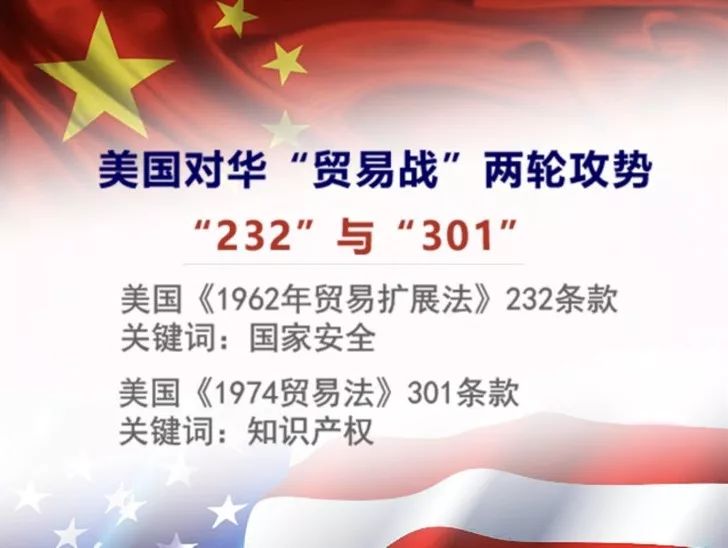
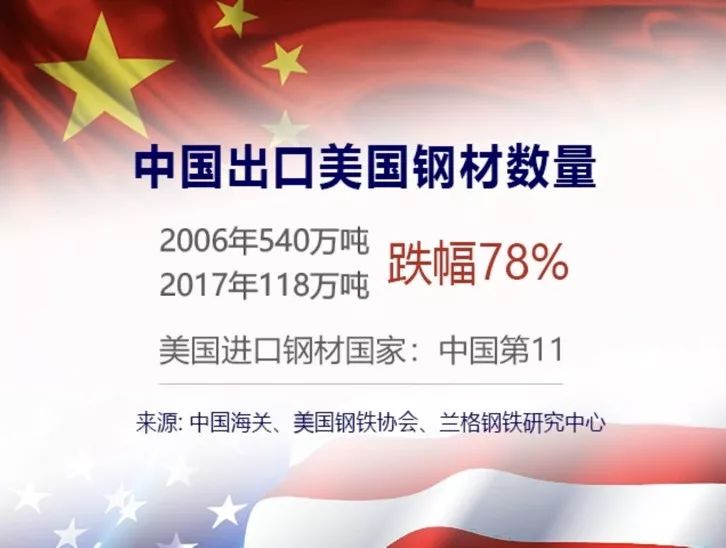
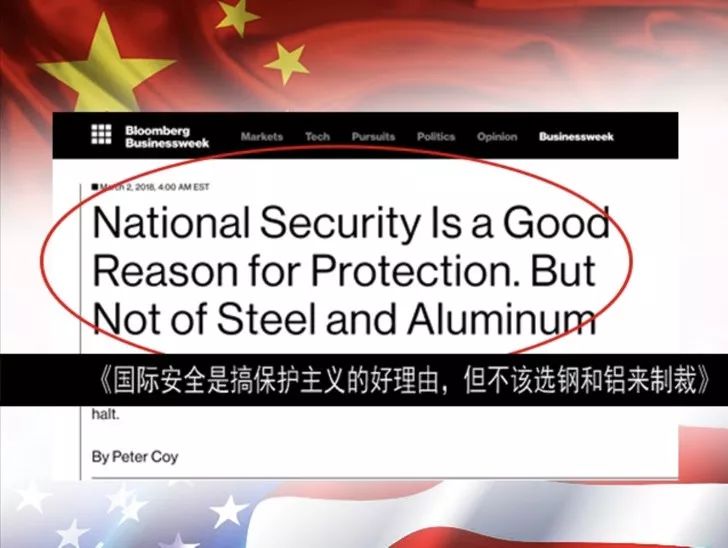
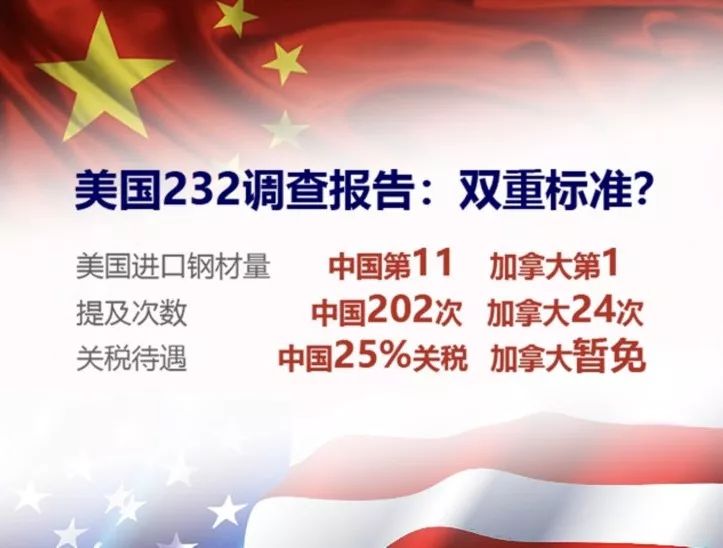
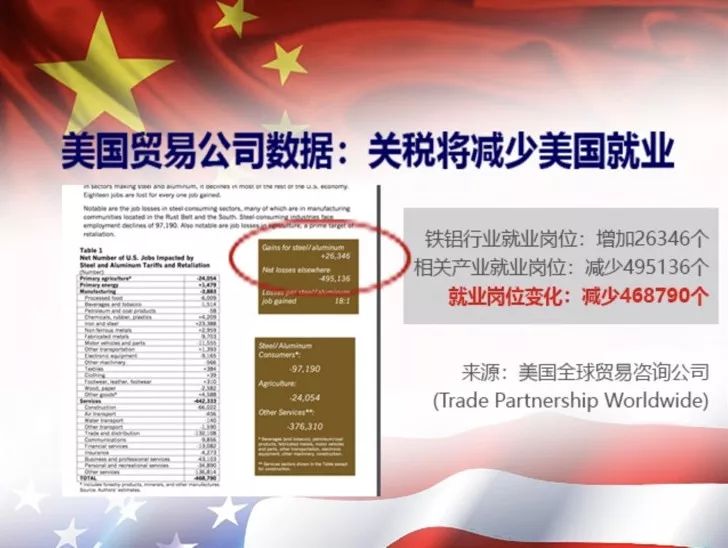
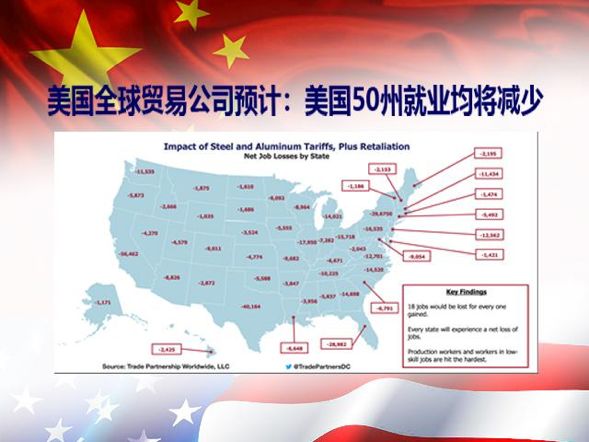
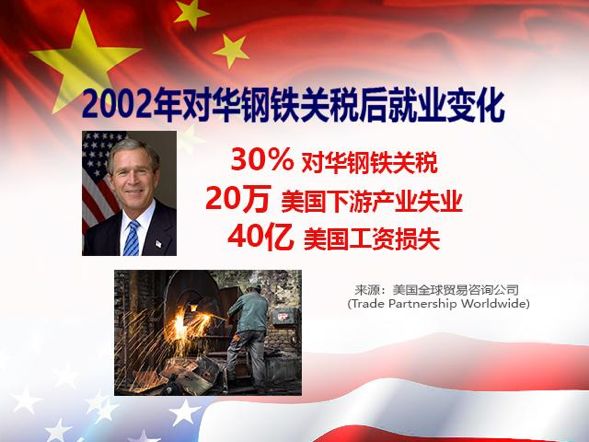
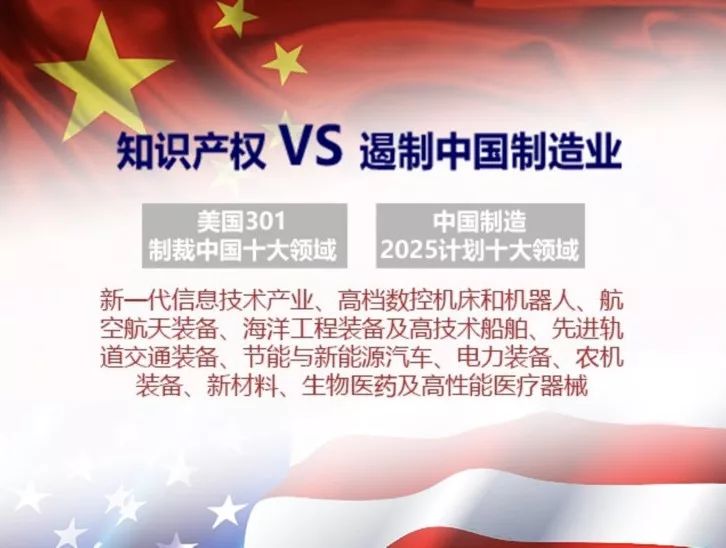

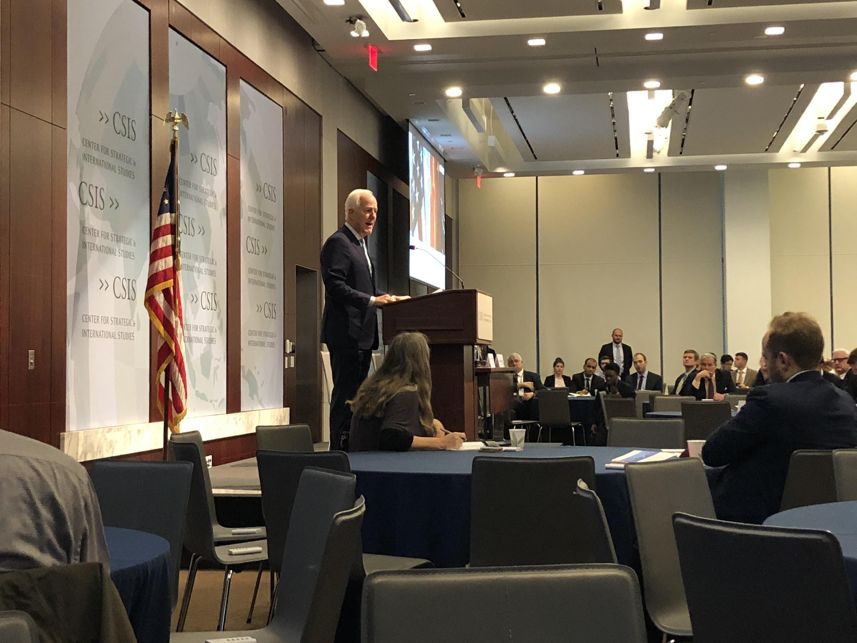
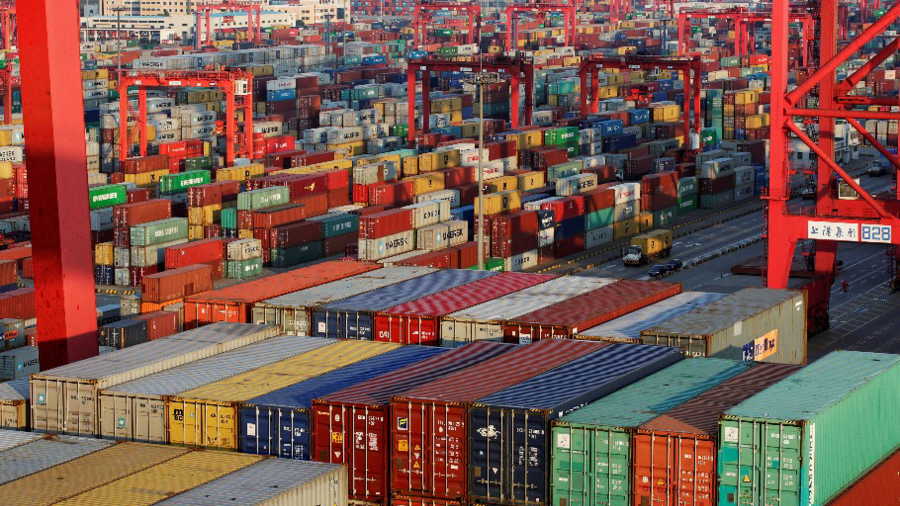
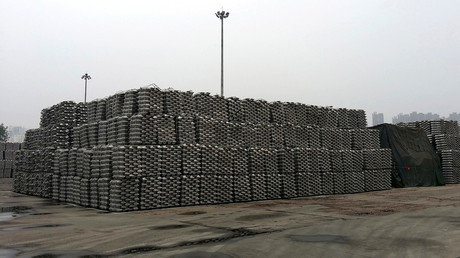 China hits back at Trump, announces retaliatory tariffs on $3bn of US goods
China hits back at Trump, announces retaliatory tariffs on $3bn of US goods 



